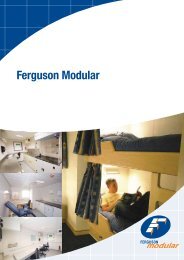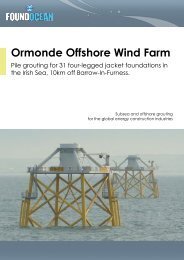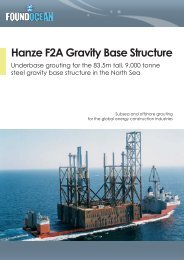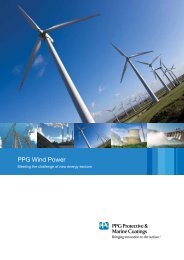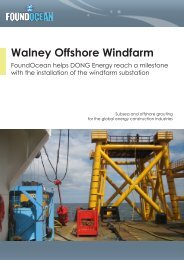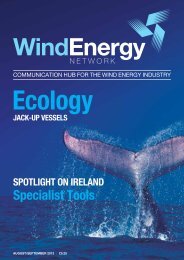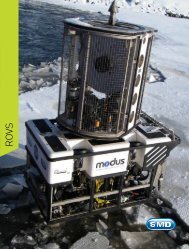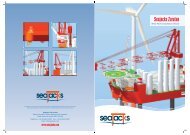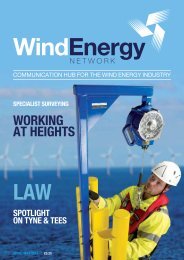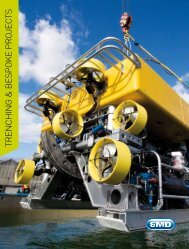UNEXPLODED ORDNANCE - Wind Energy Network
UNEXPLODED ORDNANCE - Wind Energy Network
UNEXPLODED ORDNANCE - Wind Energy Network
You also want an ePaper? Increase the reach of your titles
YUMPU automatically turns print PDFs into web optimized ePapers that Google loves.
BUSINESS DEVELOPMENT<br />
Renewables Development<br />
Programme Workshop 2<br />
Competence<br />
For me<br />
the only<br />
meaning of<br />
competence<br />
is the<br />
competence<br />
of an<br />
organisation<br />
Some people are happy to use the term<br />
in relation to an individual. I think that this<br />
can only be valid if one is talking about<br />
an individual performer. And even then,<br />
when you consider the classic individual<br />
performers, it is difficult to conclude that<br />
they are not in fact part of a larger team.<br />
A golfer has his caddy, a boxer has his<br />
trainer and his seconds, a violin soloist has<br />
his conductor, and an artist has his muse.<br />
There are very few people who are truly<br />
alone. 99% of people who have to deliver<br />
a result are part of a team, an organisation.<br />
When it comes to delivering a result it is the<br />
competence of the organisation that has to<br />
stand the test, to prevail and to succeed.<br />
The constituent parts of organisational<br />
competence are...<br />
• Expertise – the skill, craft or technical<br />
virtuosity of the individual<br />
• Equipment – the tools or technical<br />
support instruments used by the<br />
individual and<br />
• Environment – the workplace aspects<br />
in which the individual has to perform<br />
Organisational competence is like a<br />
three legged stool. If any one of the<br />
legs is shorter than the others, then the<br />
performance of the stool is second rate.<br />
If the short leg is a lot shorter than the<br />
others then the performance of the stool is<br />
rubbish … or firewood.<br />
In the context of the ultimate team<br />
scenario American football, the concept<br />
of organisational competence can be<br />
understood in human terms more clearly.<br />
To make a successful play the team<br />
has to move as one. Each individual<br />
must execute their specific task in<br />
synchronisation with his team members<br />
to create the successful<br />
score, or the successful<br />
defence.<br />
How do we describe<br />
the competence of the<br />
team in terms of the three<br />
constituents<br />
Organisational competence<br />
First of all let’s look at the constituent parts<br />
of organisational competence and see<br />
how that differs from the more popular<br />
reference to personal competence. When<br />
I have heard people talk about personal<br />
competence I always understand them to<br />
mean skill, or expertise. That is good, as<br />
far as it goes but it doesn’t go far enough<br />
when trying to improve the performance<br />
of a team or organisation. An organisation<br />
in our world is no more than a commercial<br />
team, so I shall use those two terms as<br />
interchangeable.<br />
Expertise<br />
The linemen, who play<br />
up front, operate as a<br />
team within a team. Their<br />
expertise as individuals is<br />
the application of explosive<br />
power with upper body<br />
strength and swift lateral<br />
movement with fast feet,<br />
whilst staying in complete<br />
balance in the face of a 23<br />
stone opponent or two.<br />
To develop this expertise, players have<br />
to practice specific drills until it becomes<br />
second nature to apply them in the game<br />
situation.<br />
20<br />
www.windenergynetwork.co.uk



